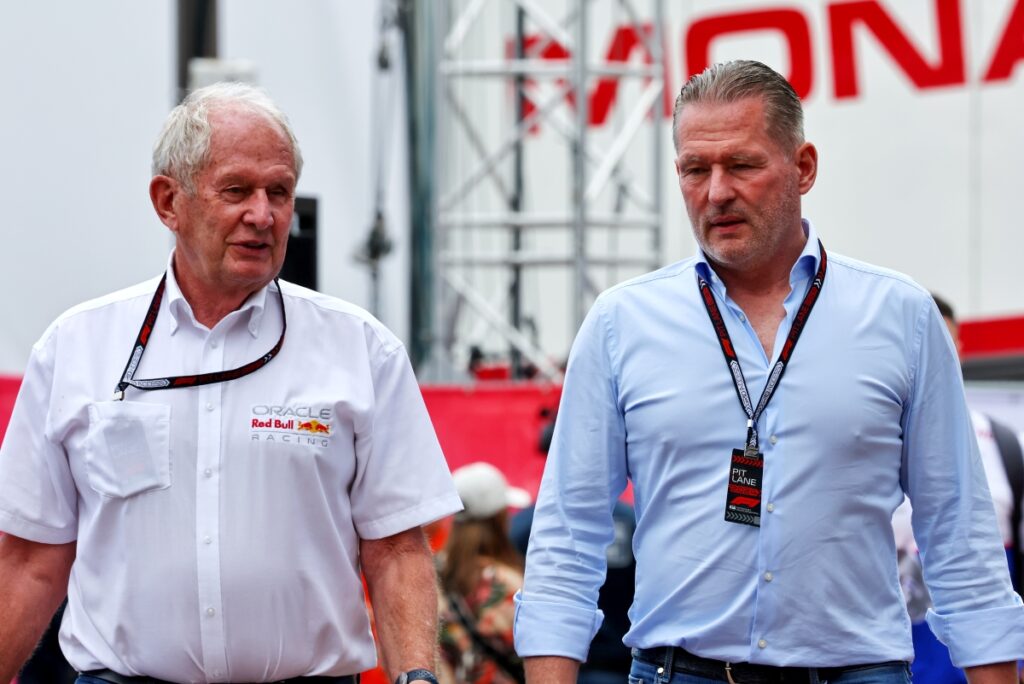Red Bull’s Shocking Secret: Why Their F1 Car Struggles on Kerbs

In a revealing turn of events, Helmut Marko, the well-known advisor for Red Bull’s Formula 1 team, has acknowledged a critical correlation issue with their racing simulator. This problem became glaringly evident during the Monaco Grand Prix when the Red Bull cars faltered on kerbs, exposing a flaw that has persisted yet remained masked by the team's general dominance.
Helmut Marko laid out the core of the dilemma: the simulator Red Bull relies on fails to replicate real-world track conditions adequately. “In the simulator we drive over the kerbs without any problems,” Marko explained. However, on the actual circuits, the cars react quite differently.
Verstappen’s Frustration
Max Verstappen, Red Bull’s star driver, has been particularly vocal about the issue. Dubbed the reigning champion, Verstappen described his driving experience in Monaco as akin to driving “a go-kart running without a suspension.” He criticized the car for not absorbing kerb strikes or bumps efficiently, labelling it a fundamental flaw stemming from 2022 that rival teams have not been able to exploit—until now.
Despite managing to be in contention for his ninth successive pole position, Verstappen's performance was hampered when he nicked the wall on his last lap, resulting in a sixth-place finish. His visible agitation post-race underscored the severity of the car's balance and handling problems.
Not Just a One-Off Issue
The problematic correlation isn’t confined to Monaco. According to Marko, the Red Bull team faced similar kerb-related challenges at other circuits like Miami and Imola, highlighting that it's a recurring issue. “So we have to start with that,” Marko stated, indicating that fixing this flaw is a high priority for the team.

Looking Ahead: Uncertain Terrain
Looking to future races, Verstappen remains cautious. The Circuit Gilles Villeneuve in Canada poses the next significant test, a track where ride quality is paramount. Verstappen hinted at further vulnerabilities for Red Bull at circuits necessitating adept kerb-handling. “It’s a fundamental problem, so it’s not something that will be fixed within weeks,” he admitted.
Asked about potential upcoming issues, Verstappen provided a detailed response: “Spain has no bumps so that’s probably better for us, but some tracks with bumps where you have to ride kerbs, there are definitely a few tracks not ideal for us.” Despite this, he maintains hope, noting, “There’s one clear direction where we are still lacking quite a bit of performance and already if we can fix that, our car can be better on every single track.”
Addressing the Challenge
Both Marko and Verstappen agree that adjusting the simulator to better replicate real-world conditions is a critical first step. Marko pointed out that while the season began with great optimism, early setbacks in Australia highlighted the pressing nature of the problem. The team aims to regain their form as they head to more traditional circuits like Barcelona.
This situation presents an intricate balancing act for the Red Bull engineers and strategists. While their dominance has masked these issues in the past, the vulnerabilities exposed at Monaco serve as a wake-up call. It's clear that to maintain their edge, Red Bull will need to fine-tune their simulator and, consequently, their car’s real-world performance across varying track conditions.
The Road Ahead
As the season progresses, all eyes will be on Red Bull and how swiftly they can address this significant flaw. The Monaco Grand Prix has served as a pivotal moment, laying bare the challenges that lie ahead. Will Red Bull bounce back stronger, or will this kerb conundrum continue to trip them up? Only time will tell as the team navigates these rocky terrains, both figuratively and literally.